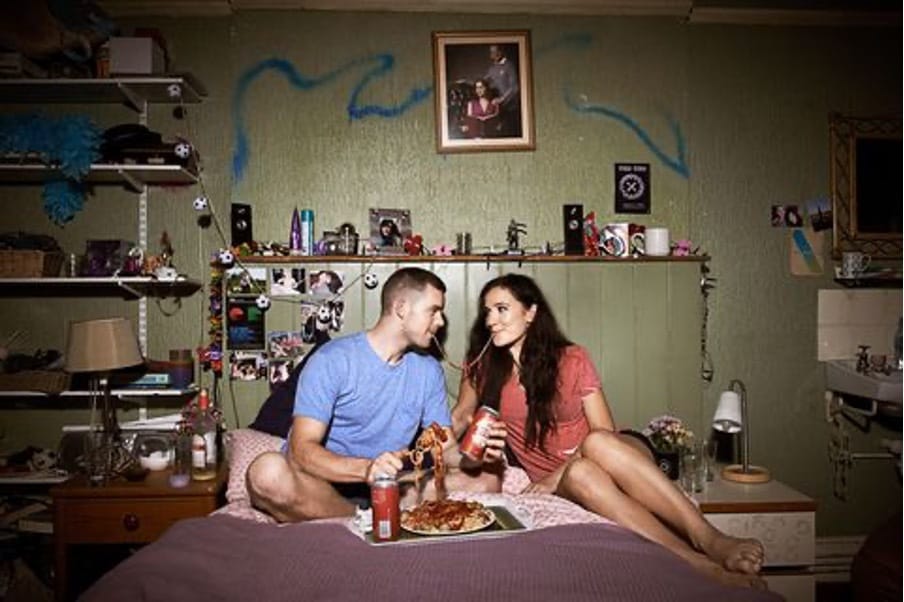Him and Her, then and now: Sarah Solemani on her role in the comedy that refused to laugh at people on benefits

By Joe Greaney, MA Music in Development
Rishi Sunak has made a big decision. Following public pressure and predicting a backlash from his own MPs, the Chancellor has reluctantly decided to keep the £20 uplift to Universal Credit until September.
Although the uplift is set to end abruptly in the Autumn, this extension will insulate countless low-income families against the devastating financial impact of the Covid-19 crisis. It is remarkable that Sunak, an instinctively hawkish and wholly Thatcherite politician, would even hesitate to cut the UK’s welfare budget at a time of record high Government spending given the opportunity.
Not so long ago the Conservative Party freely attacked the undeserving poor. The coalition government specialised in stirring up moral outrage against easy targets. Discussing the welfare system in 2012, David Cameron said he wanted to ‘strike a better balance between those who work and do the right thing, and those who have understood how to work the system.’ The British media joined the pile on, with curtain-twitching headlines about teenage pregnancies, and Channel 4’s documentary series Benefits Street, which allowed viewers to gape freely at welfare claimants in central Birmingham.
It was during the coalition government that the BBC Three comedy Him and Her was broadcast. Running between 2010 and 2013, the show was written by Stefan Golaszewski, telling the story of Becky (Sarah Solemani) and Steve (Russell Tovey), an unemployed couple in their mid-twenties living in Walthamstow. Their primary goals involve eating, drinking, sleeping, and having sex.
The pair are brought together by their common belief that getting a job will result in, as Steve puts it, having to ‘spend my entire life getting paid basically nothing to do something boring and get treated like s***.’
Unlike other comedies, Him and Her did not laugh at Becky and Steve’s lifestyle. Rather, it celebrated what is essentially a classic story of a loved-up couple. Becky and Steve are frequently visited in their flat by family and friends who live more conventional lives of gainful employment. Visitors from the outside are invariably sour and judgemental, yet they never shut them out: Becky and Steve are good people.
Sarah Solemani appears on my screen, fresh from a school run. I ask how she now looks back on Him and Her, over seven years after the show’s last episode aired.
The show has an enduring popularity, which pleases Solemani. She is proud to be asked by fans if the show will return for a lockdown special, and considers this a testament to its quality. Viewers are invited into Steve and Becky’s flat – Solemani describes it as a ‘protective bubble’ – where they can rise above the harsh judgement of the outside world. After several long months of lockdown, the couple’s ongoing confinement in their flat is now familiar to many, while their zen-like tranquility in this environment is desirable.
Solemani surmises ‘even though [Steve and Becky] had nothing, it was weirdly aspirational because you just wanted to be like them’. She suggests the show’s power lies in capturing ‘the intimacy of life that is our universal language’.
Solemani, now living in Los Angeles, appreciates how the show’s minimalist plot lines allowed viewers to closely observe the intimacy of Becky and Steve’s relationship: Entire episodes of Him and Her hang on the mundane, from the breaking of a shatterproof ruler to the visit of an ex-girlfriend dropping off a CD. She contrasts this with Hollywood’s tendency towards largesse and elaborate storylines.
She recalls how, at pilot stage, Him and Her was provisionally titled ‘Young, Unemployed and Lazy’, a name she strongly felt did not reflect the ‘essence’ of the show.
Solemani considers how, when she was cast as Becky, she was herself unemployed and claiming benefits. Inspired by the working-class background of her grandmother, a secretary at Tesco who lived in a council house and helped to raise Solemani following the passing of her mother, she does not seek a ‘badge of honour’ from her family story, but does not ‘forget that legacy.’ Her long standing support for the Labour Party and now also for the Black Lives Matter movement, draws on a rich understanding of class consciousness informed by her mother’s Marxism, which also compels her campaigning for the decriminalisation of prostitution and sex workers’ rights.
She mentions how, concurrently to the coalition Government and Him and Her, a new debate was developing around class, embodied in Owen Jones’ Chavs: Demonisation of the Working Class. In 2012, Solemani adapted Chavs into a warmly-received series of short plays, starring Eastenders actor Natalie Cassidy, at the Lyric Hammersmith. She remembers the development of this counter-narrative as something it was ‘exciting to be part of’.
However, I gather that for Solemani Him and Her was not necessarily about class. Becky and Steve, unlike many working class characters in comedy, were not defined by their situation, but presented to viewers in intimate detail: recognisably human and fully realised.
On the occasions when she was recognised in public as Becky, she tells me how it felt as though she and the audience were intimately connected, as if ‘we had all been in bed together’. For me, Him and Her showed that good storytelling can bring many strange bedfellows under the duvet.
Photo caption: Russell Tovey (left) and Sarah Solemani (right) as Steve and Becky (Credit: Perry Curties)




